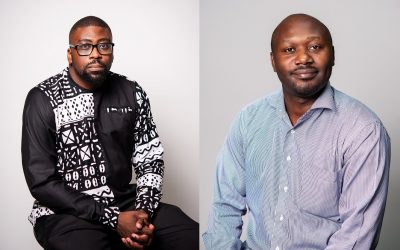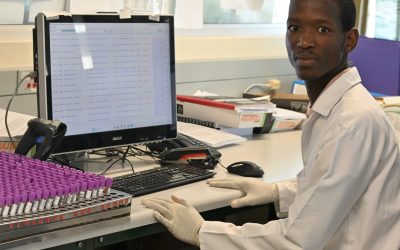Sefako Makgatho Health Sciences University (SMU) is taking a firm stand against gender-based violence (GBV) through the dedicated work of its Gender-Based Violence Office. Under the leadership of Acting Manager, Busi Mbanjwa, the Office has become a cornerstone in promoting a safe, inclusive, and supportive environment for both students and employees. “The Gender-Based Violence Office at SMU is a dedicated unit committed to preventing, addressing, and responding to incidents of GBV,” says Mbanjwa. “Our goal is to foster a safe and inclusive campus by providing survivor-centred support and leading institutional interventions.”
 The establishment of the Office was driven by a national directive from the Department of Higher Education and Training (DHET) in response to the alarming prevalence of GBV in institutions of higher learning. Since its inception, the Office’s role has evolved from reactive case management to spearheading proactive policy implementation and educational initiatives across the university.
The establishment of the Office was driven by a national directive from the Department of Higher Education and Training (DHET) in response to the alarming prevalence of GBV in institutions of higher learning. Since its inception, the Office’s role has evolved from reactive case management to spearheading proactive policy implementation and educational initiatives across the university.
“Our role has grown tremendously,” Mbanjwa explains. “We now lead prevention campaigns, policy development, and campus-wide education efforts that seek to shift the culture towards one of respect, safety, and zero tolerance for GBV.”
Though physically located in Room S531 of the Clinical Pathology Building, the GBV Office is present and active throughout the campus. “We ensure inclusivity and accessibility by engaging directly with the university community—whether in student residences, cafeteria, lecture venues, or public areas,” she adds.
When a survivor reports an incident, the office facilitates a private, confidential, and trauma-informed intake process. “We create a safe space for disclosure, assess immediate safety needs, and guide the survivor through all available options,” says Mbanjwa. Survivors are then supported through either formal grievance procedures or informal resolutions, based on their informed preference.
In formal cases, an independent investigator is appointed, and the matter proceeds in line with institutional policies. If there is sufficient cause, this process may lead to disciplinary action. In contrast, informal resolution focuses on restorative approaches such as mediation or facilitated dialogue to address the harm.
“Survivors are never alone in this journey,” she emphasises. “We also have a legal obligation to report certain incidents—particularly sexual offences involving vulnerable groups, such as female students aged 25 and under—to the South African Police Service.”
Confidentiality is a fundamental principle. “We have stringent protocols to protect survivors’ privacy and dignity,” Mbanjwa affirms. “At the same time, we ensure accountability through fair and transparent processes.”
The office collaborates with internal stakeholders including the Student Counselling Unit, Security Services, Residence Office, Human Resources, and the Legal Office to provide psychosocial support and emergency accommodation. “Our strength lies in collective action,” Mbanjwa says. “Together, we offer a comprehensive support network.”
Advocacy and awareness are central to the office’s mission. “We run structured annual campaigns, including self-defence classes, webinars, policy awareness sessions, and inclusive forums like the ‘Sisterhood Safe Space’ and ‘iNdoda Must, iMama Must’ dialogues,” she explains.
Training sessions educate the SMU community on topics such as consent, healthy relationships, power dynamics, and navigating institutional reporting mechanisms. The office has also trained first-line responders to manage disclosures with compassion and professionalism.
Response from the university community has been largely positive. “Students and staff appreciate our visibility and the support we offer,” Mbanjwa notes. However, she acknowledges that stigma and fear still hinder many from reporting. “We are actively working to break this silence and build trust.”
To evaluate its impact, the office uses data on case reports, survivor feedback, and participation rates, and is planning a campus-wide perception survey. Its goals for 2025 include expanding advocacy efforts, increasing policy awareness, strengthening partnerships, and enhancing the visibility of services.
“Our ultimate aim,” concludes Mbanjwa, “is to make SMU a leading example of how institutions can foster a culture of safety, dignity, and support, where every individual feels protected, heard, and empowered.”
By Tumelo Moila



